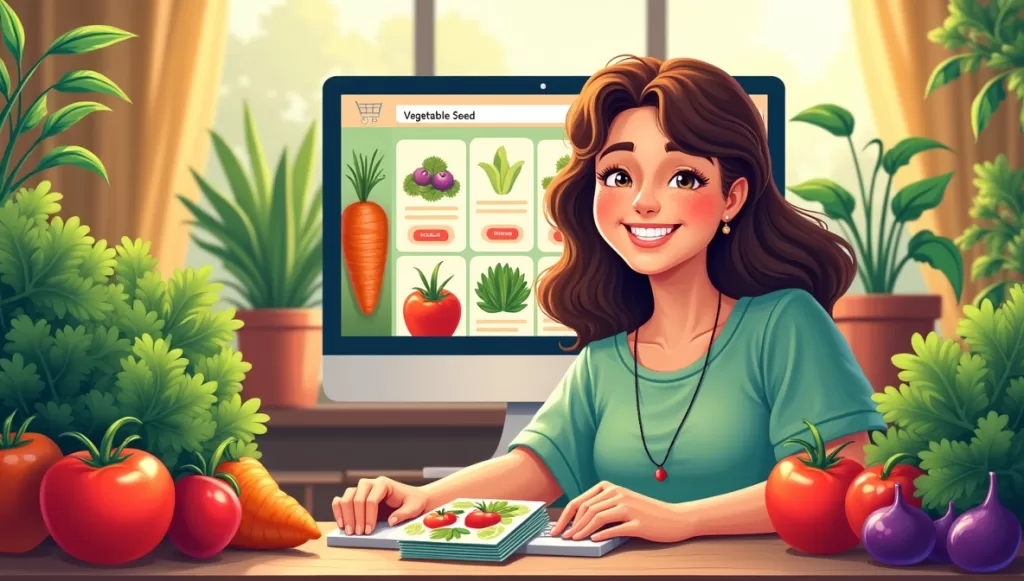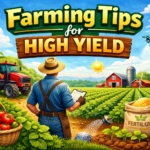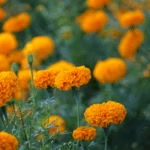Buying vegetable seeds online has never been easier — but with so many options, finding the right seeds for your garden can be challenging. The quality of your seeds directly impacts your plant health, harvest size, and gardening success. This guide will help you choose the best seeds, avoid common mistakes, and shop confidently from trusted online stores.

1. Understand Your Gardening Goals
Before adding seeds to your cart, think about:
- Purpose: Home gardening, kitchen use, or selling produce.
- Space: Container gardening, raised beds, or open ground.
- Season: Warm-season vs. cool-season crops.
For example, tomatoes, cucumbers, and peppers thrive in summer, while spinach, carrots, and lettuce grow well in cooler months.
2. Know the Different Seed Types
When browsing online, you’ll come across several types of vegetable seeds:
- Heirloom Seeds: Passed down for generations, rich in flavor and genetic diversity.
- Hybrid Seeds (F1): Bred for higher yields, disease resistance, and uniform growth.
- Organic Seeds: Grown without synthetic chemicals, ideal for eco-conscious gardeners.
- GMO Seeds: Usually not available for home gardeners and often restricted.
3. Check Germination Rates
High-quality seeds should have a germination rate of 80% or more. Most reputable sellers display this on the packaging or product description. Better germination means less waste and stronger crops.
4. Match Seeds to Your Climate
Your local climate determines which vegetables will thrive.
- Tropical Regions: Okra, eggplant, chilies, gourds.
- Temperate Regions: Lettuce, peas, broccoli, kale.
- Dry Regions: Beans, onions, sun-loving crops.
Many online seed companies offer regional planting guides to help you choose.
5. Buy from Reputable Online Stores
Not all seed sellers are equal. Look for:
- Positive customer reviews
- Clear product descriptions with variety details
- Fresh packaging dates
- Availability of growing guides
Trusted Online Vegetable Seed Stores:
- Johnny’s Selected Seeds
- Baker Creek Heirloom Seeds
- Agzora (Fresh seeds suited for Indian climates)
6. Compare Prices and Shipping
While shopping online, factor in:
- Seed packet price vs. quantity
- Shipping costs and delivery time
- Discounts for bulk orders
Cheaper is not always better — prioritize freshness and reliability.
7. Check for Planting Instructions
Good seed companies provide:
- Sowing depth
- Spacing requirements
- Watering frequency
- Days to maturity
These details are crucial for beginners.
8. Avoid Common Mistakes When Buying Vegetable Seeds Online
- Buying seeds unsuitable for your climate
- Choosing only trendy varieties instead of proven performers
- Ignoring the “packed for” date — older seeds may have low germination
FAQs
Q1. Can I store unused vegetable seeds?
Yes, in a cool, dry place. Most last 1–3 years if stored properly.
Q2. Are organic seeds better than regular seeds?
They’re grown without synthetic chemicals, making them better for organic gardens.
Q3. How do I know if seeds are fresh?
Check the packing date and germination rate provided by the seller.
Conclusion
Choosing the best vegetable seeds online involves more than picking pretty pictures. You need to consider seed type, quality, climate suitability, and the reputation of the seller. By following these tips, you can ensure a healthy, productive garden that rewards you with delicious, home-grown vegetables.
Call to Action:
Start your gardening journey today — shop fresh, high-quality vegetable seeds online at Agzora.com and grow your dream garden!





